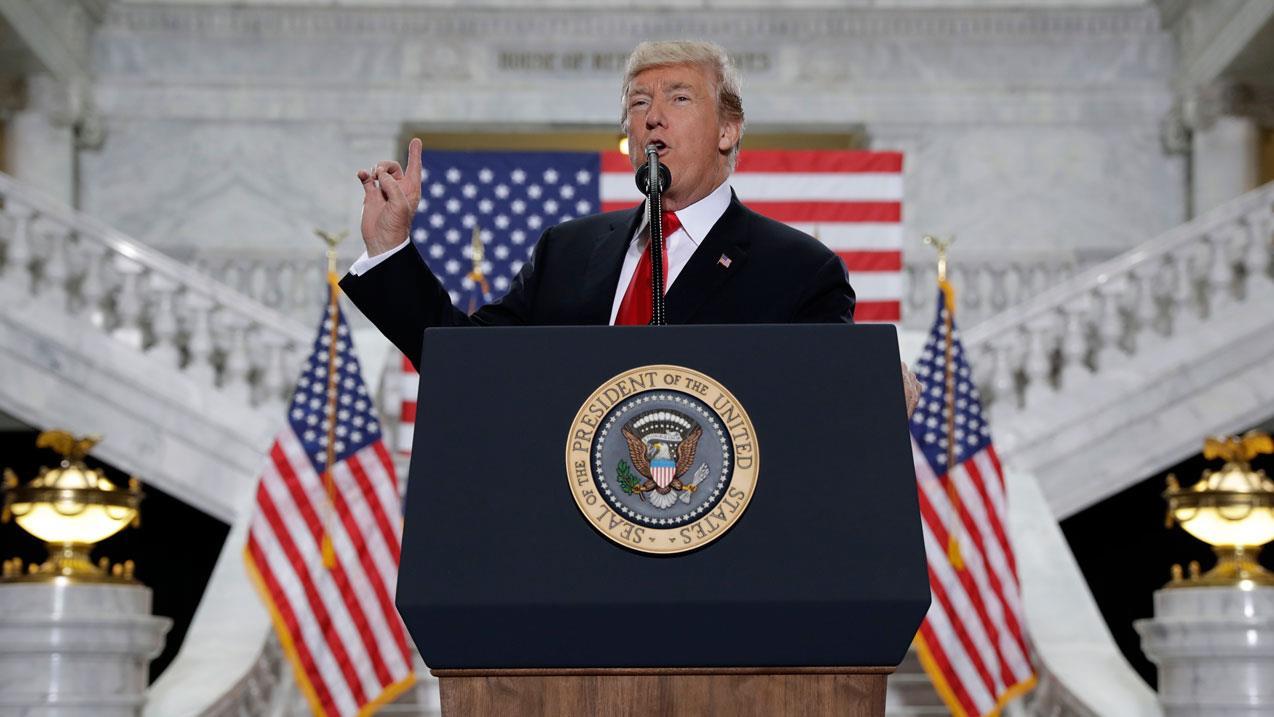Will the US-China tariffs really stick? Experts weigh in
China and the United States just got closer to a full-blown trade war on Wednesday, with China threatening to impose more than 100 new tariffs on U.S. products after President Trump made a similar move against Beijing on Tuesday.
But while Trump insists it’s not a “trade war,” saying that war “was lost many years ago” against China, many Americans and especially big business who will bear the brunt of the charges still worry, will the tariffs stick?
William Reinsch, a foreign trade expert at the Center for Strategic and International Studies – a Washington, D.C., think tank – and the former president of the National Foreign Trade Council, says Americans should rest assured that things will eventually work out.
“These things usually lead to a negotiation, and that will happen this time. The fact that neither side is imposing the tariffs immediately is a sign that they expect to talk,” Reinsch tells FOX Business.
He adds that the success of those talks will ultimately depend on what the U.S. and Trump want in the end.
“If our focus is on the size of the overall deficit, as the president has frequently said, there are things the Chinese can do to help with that. If our focus is what the president's advisers have said, to get China to alter its technology transfer and discriminatory policies, then the likelihood of success is much less.”
But Robert Daly, director of the Kissinger Institute on China and the U.S., doesn’t think negotiations between the two countries will be easy and says China “won’t cave” that quickly.
“The U.S. is no longer as powerful or intimidating as its threats and tactics imply. China has risen and is now a peer competitor of the United States. It is the world’s largest trading nation, the largest economy by some measures, and is home to the largest concentration of middle class consumers on Earth. A trade war will hurt China, but can’t cripple it,” Daly tells FOX Business.
He adds that the U.S. simply doesn’t have the “throw-weight it enjoyed from the end of WWII until the Financial Crisis of 2008.” Additionally, while the Trump administration has labeled China as a “rival,” it isn’t clear that Americans are willing to pay the real cost to oppose it.
“Corporate lobbying has already watered down the CFIUS (Committee on Foreign Investment in the U.S.) reform bill making its way through Congress. It is certain that, over the 30-day period of comment on President Trump’s proposed China tariffs, the administration will be inundated with visits from American planters, manufacturers, financial service companies and local governments – many in Republican districts – who understand that China is a bad actor, but don’t want their own livelihoods harmed in the coming battles,” he says.
Riley Waters, policy analyst for Asia economy and technology for the Davis Institute for National Security and Foreign Policy says even if all the tariffs go through as planned, they most likely won’t begin until at least this summer.
“By that time Congress will be going home to begin their election campaigning,” he says, adding that in the end tariffs won’t significantly harm the U.S. economy or overall trade with China.
“But these are still costs for American consumers. There are no winners in a tit-for-tat trade war. And the U.S. administration is showing their willingness to bear short-term costs in the hopes of bringing China to the negotiating table to liberalize their markets.”




















